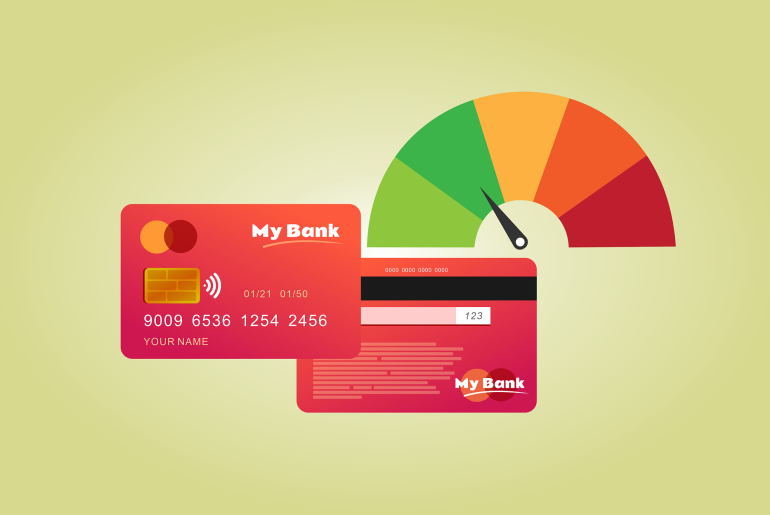This article may contain references to products or services from one or more of our advertisers or partners. We may receive compensation when you click on links to those products or services. Nonetheless, our opinions are our own.
The information presented in this article is accurate to the best of our knowledge at the time of publication. However, information is subject to change, and no guarantees are made about the continued accuracy or completeness of this content after its publication date.

Updated by Albert Fang
A favorable credit score brings forth numerous advantages when seeking a loan. There are instances when financial circumstances take a sudden downturn, necessitating a loan for assistance or as a temporary solution until stability is regained. Similarly, when considering a home purchase, a mortgage might be a viable option if immediate funds are lacking. Acquiring a new car through a loan for gradual repayment could also be a consideration.
If you envision yourself encountering such situations in the future, actively enhancing your credit score should be a priority. The following are nine valuable strategies to enhance your credit score, ensuring you’re well-prepared for any potential future loan requirements:
Use Tradelines
Tradelines are lines of credit that you set up that represent all your good credit habits. The information that you have in a tradeline will significantly improve your credit score, even if you are struggling with some bills or debt repayment. In the long term, if you maintain your payments and manage your finances correctly, your tradeline can help you significantly raise your credit score.
Monitor Your Credit
According to many financial experts, the ideal credit score is 760, since you can access most financial services at this level. If you are not at this level yet or have dropped below it, a credit monitoring service can be helpful to gauge the efficacy of your efforts. Signing up for one of these means that all your expenditures will be indexed, and you can know their impact on your score.
Your Bills Are Crucial
To ensure your bills are always in check, you have to organize everything in a single place where you can check on them and track their due dates. You must also have time in the month or week to check your bills consistently to ensure you are always caught up on all payments. You must choose a repayment method suitable to your current financial setup, either by debit, credit, e-money, or any other that allows you to spend as little as possible in transaction fees.
You have one efficient financial partner to help you monitor your bills and take full control of your financial activities. With the benefits of the AT&T Points Plus card from Citi, you can simplify your bill management and enhance your capacity to control your finances. It’s a user-friendly interface that allows cardholders like you to effortlessly organize and track your bills in real time. You’ll have the best way of making sure that you pay your bills on time and avoid late fees or charges. It will also help you monitor and control your purchases and, at the same time, maintain a good credit score.
Watch for the Future
Individuals frequently make poor financial choices when facing difficulties, and averting such circumstances can significantly contribute to upholding your credit score. The most effective approach is to establish an emergency fund capable of sustaining you for an extended period, preferably around six months.
Achieving this is attainable by partnering with a financial institution like San Antonio credit union, which enables you to invest your savings during idle periods. If you get in a tough spot, you can also explore manageable loan options depending on your financial status.
Paying Loans
While immediately paying off a loan early can have a tremendous financial reprieve for you, it can negatively impact your credit score or have no impact. One of the explanations for this effect is that a loan or credit card debt has an ‘open’ status on your report, and your payments positively impact the overall score.
The solution is to pay off the loan according to the agreed installments because this will positively affect your credit score. Set up payment reminders, whether through your bank’s online platform or calendar notifications, to ensure you never overlook a due date. Missing payments, even by a few days, can have a negative impact on your credit score.
Dispute Errors in Your Report
You are entitled to receive a complimentary credit report annually from one of the three primary credit bureaus in the nation. As you seek a loan, these bureaus typically sell your credit information to various entities, such as banks or lenders. A flaw in your credit score may make it challenging to obtain important financial products, and it can only be fixed if you dispute it.
Identity theft or financial fraud are two things that may affect your report. You can cross-reference the accurate information from your credit monitoring with the data from your yearly credit report. If an issue is evident, you must dispute it so the credit bureaus can take the proper steps to correct and report the suspicious activity.
Credit Utilization Is a Good Move
Credit utilization is the practice of ensuring that you keep your credit limits on your various cards at specific percentages. Next to timely payments, this is one of the most impactful aspects of your finances that affects your credit score. You can find this ratio easily by using the credit card limit to divide the credit card balance.
Your credit score is created from the overall credit utilization ratio and every individual card ratio. Since the FICO score, the foremost credit score used by many institutions, sets your credit utilization ratio at 30%, you must keep your credit card balances low for a high score. To ensure this, you can explore various strategies that help you to achieve this month after month. Resources like credit repair cloud review can help in this area.
Be Cautious with New Credit Applications
Each time you apply for new credit, a hard inquiry is made on your credit report. Multiple hard inquiries in a short period can suggest you’re actively seeking credit, which might raise concerns for lenders. Be selective when applying for new credit and only do so when necessary. If you have older, well-maintained accounts, keeping them open can contribute to a better credit score.
Pay Your Credit Card Debt
Make it a priority to establish a robust management strategy for debt elimination. Managing multiple credit cards used for various expenses can lead to difficulty in tracking expenditures and repayment progress. This can lead to forgotten cards damaging your credit score in the long term. You can take charge of this using different methods to repay your debt. Some plans recommend paying off the most significant debts first and others the lower ones. Others involve having a third party pay off your debt, and you then pay off one company with a single repayment period instead of multiple ones.
Endnote
You have to keep track of your credit report and watch for the impact of all your decisions so you can change them appropriately. If you have the right strategies in place and you have supportive institutions backing you, you can improve your credit score to respectable levels in a few years. Remember that building and maintaining a strong credit score takes time, but the benefits are worth the effort.

Reviewed and edited by Albert Fang.
See a typo or want to suggest an edit/revision to the content? Use the contact us form to provide feedback.
At FangWallet, we value editorial integrity and open collaboration in curating quality content for readers to enjoy. Much appreciated for the assist.
Did you like our article and find it insightful? We encourage sharing the article link with family and friends to benefit as well - better yet, sharing on social media. Thank you for the support! 🍉
Article Title: 9 Tips to Improve Your Credit Score
https://fangwallet.com/2023/08/17/9-tips-to-improve-your-credit-score/The FangWallet Promise
FangWallet is an editorially independent resource - founded on breaking down challenging financial concepts for anyone to understand since 2014. While we adhere to editorial integrity, note that this post may contain references to products from our partners.
The FangWallet promise is always to have your best interest in mind and be transparent and honest about the financial picture.
Become an Insider

Subscribe to get a free daily budget planner printable to help get your money on track!
Make passive money the right way. No spam.
Editorial Disclaimer: The editorial content on this page is not provided by any of the companies mentioned. The opinions expressed here are the author's alone.
The content of this website is for informational purposes only and does not represent investment advice, or an offer or solicitation to buy or sell any security, investment, or product. Investors are encouraged to do their own due diligence, and, if necessary, consult professional advising before making any investment decisions. Investing involves a high degree of risk, and financial losses may occur including the potential loss of principal.
Source Citation References:
+ Inspo












































